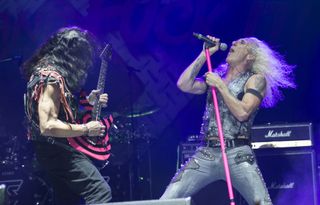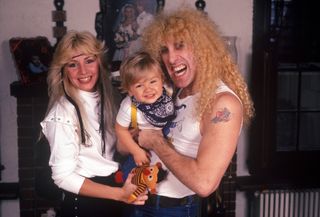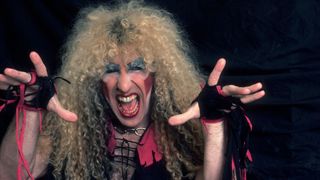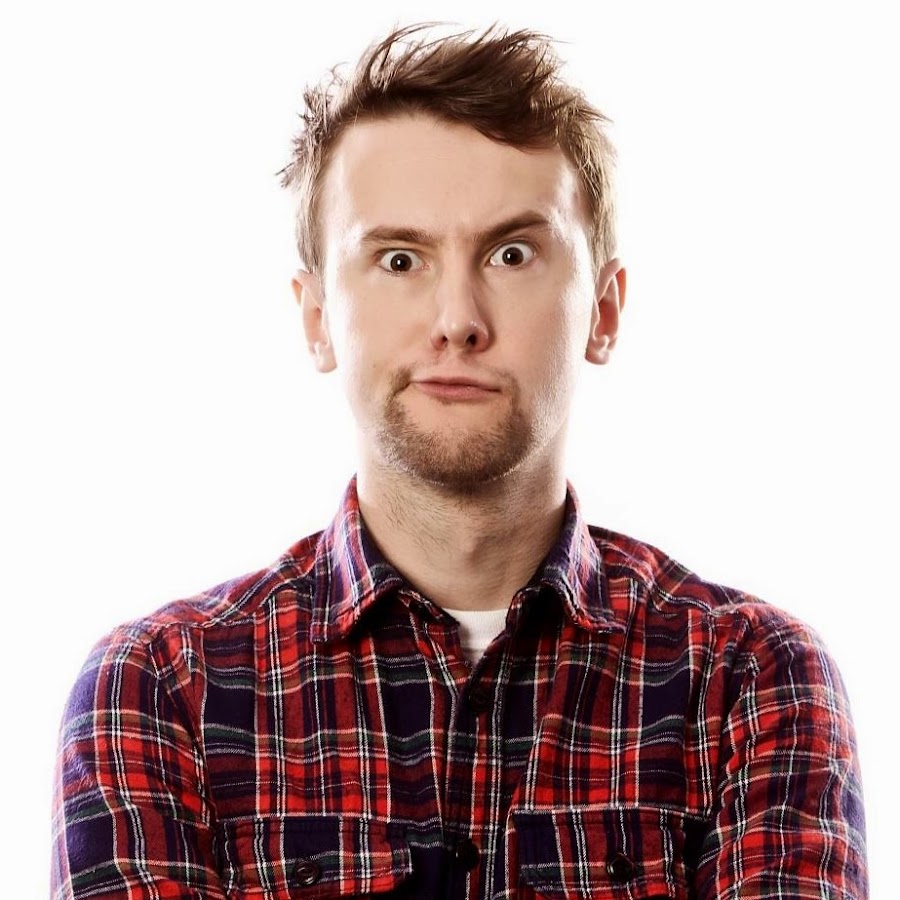Earlier this month, Twisted Sister played their last ever UK gig at Bloodstock Festival 2016.
Moments before the band went on stage, we sat down with their larger-than-life singer Dee Snider to talk about his storied career and ask him what’s next after 40 years of fronting one of the colourful rock ‘n’ roll bands in the world.
This is what’s on his mind…
“I was born and raised a Christian. I sang in the church choir until I was 19 years old. I still adhere to those Christian beliefs, but not in the Son of God, superior being way. Christ, to me, was like Martin Luther King and Gandhi, and all the other great philosophical people. I believe there’s more out there, but I don’t think it’s quite as black and white as some god who’s sitting there in judgement of us all. There’s definitely something going on out in this world, but there are no chosen ones – everybody is a part of it. I think all the religions – and they’re all very similar – have tapped into what’s going on out there, but I also think organised religion is just primitive man’s way of trying to verbalise it and put it into some kind of terms that they can explain. I think that the teachings of all of the organised religions are beneficial to society, but I don’t subscribe to any one particular church.”

“I had a very bad first experience with alcohol. I got pissed drunk at 14 and I lay on the floor vomiting. I was in a paralysed state, and the little sober voice that’s within you that’s very loud when you’re drunk said to me, ‘Good god man, everyone’s fucking laughing at you.’ It was kind of like the Carrie movie: ‘They’re laughing at you! They’re laughing at you!’ So I just said, ‘Dear lord, if you ever let me walk again I’ll swear off demon alcohol forever.’ That experience was not only not enjoyable, it also made me realise that I couldn’t control myself: I’m a person who overindulges and it’s in my nature to over do it. So that first experience set me in the direction of never wanting to drink or do drugs. To reinforce that: to perform the way I perform, I couldn’t do it if I was drunk or high.As out of control as it seems, I would just fall down if I were wasted up there. It’s being sober that allows me to be so active and aggressive, and to have that intensity. I have to have a clear mind so I can crush it.”
- Holy Vision: Dee Snider Fights The PMRC
- The gospel according to Dee Snider
- Dee Snider in piano-led version of We're Not Gonna Take It for cancer charity
- Ten things we learned watching We Are Twisted F*cking Sister on the big screen
“We live in a society where we’re encouraged to drink and get high. We’re basically steered that way, in the case that you can’t act out unless you are drunk or high. In the early days of Twisted, I used to say I was high because people thought I was weird performing the way I performed if I was straight. If I dressed the way I dressed or acted the way I acted and I was drunk or stoned, then it was OK. But if I was sober then that meant something was wrong with me. They’d ask me, ‘What are you on?’ and I’d go, ‘Nothing.’ and you’d see their faces drop, as if to say, ‘You’re weird!’ This is the world we live in. How many times have you heard the phrase, ‘Let me just have a few more drinks,’ before someone feels comfortable enough to get up and dance or sing karaoke. Why? We need an excuse to embarrass ourselves. Society is a mess.”
“I try not to be judgemental about other people using drugs and alcohol. I get it. I’ve had great friends, like Lemmy, who get very high, but as long as it doesn’t turn you into an asshole then god bless you. The first time I met Lemmy he broke out two lines of speed and said, ‘Here you go.’ I was like, ‘Lemmy, I don’t get high.’ Usually that’s like an insult to people because they’re offering you their drugs, but Lemmy just said ‘OK, more for me.’ and he did both lines. That was our relationship. As long as you don’t got a problem with me being straight then I don’t got a problem with you being high.”
“I had an appreciation of family long before a lot of my peers. Many of my peers – not all of them, but many – started their families way too late in life. Even my own guitar player, Jay Jay [French], didn’t have his first kid until he was forty something, and after he realised he wanted more it was kind of too late because he didn’t want to be one of those old dads. I see lots of my peers just starting families in their 40’s, 50’s and 60’s, and I think they really missed out. My family, and specifically Suzette [Dee’s wife], who’s been with me 40 years now, has been my oasis and my anchor: and I don’t mean in the sense that she pulls me down, I mean in the sense that she keeps me from completely floating away. She’s shown the consistency and stability to remain with me through it all. When things weren’t great she was there to lift me up, just like when things were great and getting out of control she was there to sober me up – not literally, but emotionally – and say, ‘Get a grip, man!’ We nearly broke up at one point, because there was a point in time where even she couldn’t stop me, but eventually I got hamstrung by the industry and brought down to earth and she was still there for me. So having that family unit in your life is hugely important. I can’t speak for other people, but I have to believe that what’s good for me is good for everybody. They’re the ones who will always tell you the truth, even if sometimes the truth is painful and you don’t want to hear it. The one thing I would say is this: don’t blow them off when they tell you the truth because when you’re successful there’s a whole lot of ‘Yes’ men and women out there, but there’s only a few who are bold and brave enough to say ‘No’.”

“Fame and success have always gone hand-in-hand for me. But you can be successful and not be famous, and you can be famous and not be successful.Hauntingly, I remember talking with Billy Joel about being rich and famous once and he said, ‘How bad must it suck to be poor and famous?’ He was referring to some postman who had done something and become a fixture in the newspaper, and he just couldn’t exist. He was hunted and vilified, and he didn’t have a mansion or security to hide behind. He didn’t have that insulation that cash provides. Oddly enough, just a few short years later I experienced the same thing where I was still famous but no longer successful, and I didn’t have lots of money but people still looked at me like I should. I found myself being in that unenviable position of being poor and famous. So I’ve been there. But for me, with fame has also come the success and rewards, and I feel blessed to have achieved it the first time. Then I blew it. Then I got it back and achieved it a second time. And I’m not going to blow it this time. I’m investing wisely.”
“Rock ‘n’ roll has given the world a sense of freedom: freedom from constraint, freedom from tradition, and freedom from the daily grind. The pace of the world is sort of preset for us, and it’s not a very rapid pace. But rock ‘n’ roll gives people the chance to act out and act up without hurting people, and to express themselves very viscerally. Somebody asked me the other day what I’m going to miss the most about being in Twisted Sister, and I can very clearly tell you it’s the reckless abandon. When I go out on stage with the band, it’s the closest I am to being a child. When we’re children we just act, we don’t think, but then slowly over time we’re taught the constraints of society and how to act properly, and the older we get the more and more refined and domesticated we get, and the more in control we become. But when I’m up there with Twisted Sister there’s not a lot of thinking going on. It’s in the moment and I love that about it: there’s no other time in my day, or my life, where I have that feeling of complete freedom, and I just try to share and encourage that in the audience. I’m going to miss that.”
“The Metal Meltdown DVD is a tribute to AJ Pero. I hope there’ll be future tributes that actually have AJ playing too, since we filmed his second-to-last show with the band. I can’t remember where it was, but it was filmed digitally, and that would be a great one to be released. The motivations were more than just to recognise AJ though: they were economic as well. AJ had three wives and many children over time, and like many rockers he didn’t do a lot of estate planning. So part of the reason to keep going on, even though he’d gone and we perhaps felt like we should stop, was to benefit AJ’s family and help them out. We wanted to do right by his family – there it is again, that family thing. So I’m overjoyed that it’s out there and it’s successful, and I hope there’ll be even more accolades in the coming years.”
“I feel great about closing the door on this chapter of my life. Not that I don’t like the guys, and not that I’m not proud of what Twisted Sister has done, and not that I don’t love it, but the fact that I’m physically walking off the stage and escaping in one piece – that’s what I feel great about. I’ve had multiple surgeries that have allowed me to keep performing over the years, but I never wanted to get to the point where I’m crippled. I just did an interview with Tom Araya [Slayer bassist/vocalist] and he was talking about how sad it was to be up on stage and not be able to headbang. That was how he defined himself – as a metalhead headbanging frantically. But because of the neck surgery he’s had, he told me now he just has to ‘groove’ on stage. That broke my heart, and it’s the last thing I’d want to happen to me. The way that I perform, at the level I perform, means I’ve already had to have knee, shoulder and throat surgery. It’s only a matter of time before I do something on that stage and they go, ‘We can’t fix that. You can’t do this anymore.’ That would be devastating for me. So I want to close that door.”
“My new solo album is going to be a contemporary rock album. It’s not a metal record and most metal fans are probably going to hate it. It has more appeal to Foo Fighters and Thirty Seconds To Mars fans. But I see that as a challenge and it’s exciting. I won’t be thrashing or headbanging or jumping around on the stage. I won’t be opening for Saxon and you won’t see me at Bloodstock. It’s going to be a brave new world. Will they accept me? I don’t know. If they do, I’ll move forward. If they don’t, I’ll just go hang out on the beach with my wife at our house in Belize and enjoy life, because that’s what I’m doing now. And I’m loving it.”
“When all is said and done, I hope I’m recognised as an entertainer. Outside of music, I’ve done acting, I’ve done theatre, I’m a writer, I’m a radio personality and I’ve done reality TV – mostly in the States, of course. As far as Twisted Sister goes, I view the band as an attitude and a spirit. It’s more than just the music, and it’s more than just the sum of its parts: it’s that middle finger waving in the air, it’s a laugh, it’s a scream, it’s a jump for joy and a fist in the face – all in one. There aren’t a lot of bands that put all those elements together successfully, and can take you on that ride. So I hope Twisted Sister is remembered for its attitude more than anything else.”
Twisted Sister will wrap up their farewell Forty And Fuck It tour at Lakewood Rock Carnival in New Jersey on October 1. The DVD Metal Meltdown is out now. Dee will release his solo album We Are The Ones in October on Red River Records.


